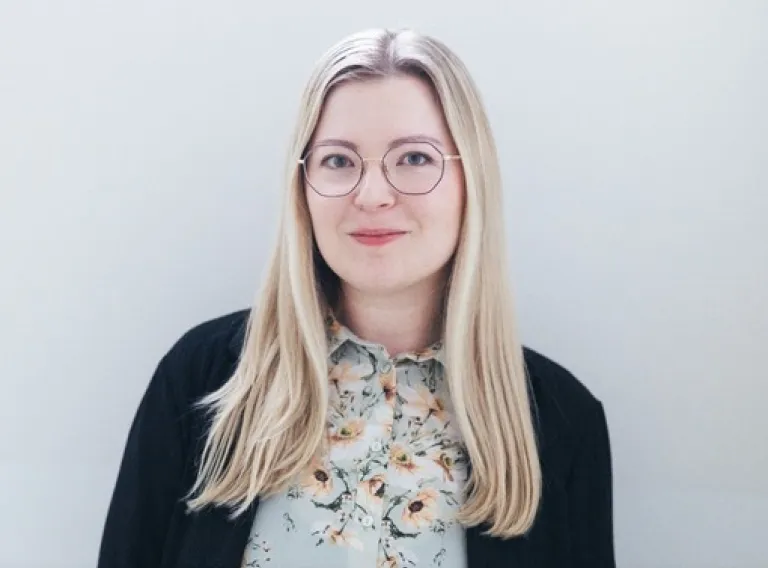Aðalbygging
On Tuesday, December 17, 2024, Vivien Nagy will defend her doctoral dissertation in pharmaceutical sciences at the Faculty of Pharmaceutical Sciences, University of Iceland. The dissertation is titled: Design of Experiments Optimization of N-acyl and N-alkyl Chitosan Synthesis and Application Investigations.
The opponents are Dr. Luminita Marin, Research Director at the Petru Poni Institute of Macromolecular Chemistry in Romania, and Dr. Ögmundur Viðar Rúnarsson, Project Manager in the Development Department at Alvotech.
Vivien's supervisor was Már Másson, Professor at the Faculty of Pharmaceutical Sciences. Additional members of the doctoral committee included Bergþóra Sigríður Snorradóttir, Assistant Professor; Christiaan Petrus Richter, Professor; Elvar Örn Viktorsson, Assistant Professor; and Héléne Liette Lauzon, Head of Research and Development at Primex.
The ceremony will be chaired by Berglind Eva Benediktsdóttir, Dean of the Faculty of Pharmaceutical Sciences, and will take place in the Ceremonial Hall (Hátíðasalur) in the Main building of the University of Iceland, beginning at 1:00 PM.
Abstract
Chitosan, a biopolymer with broad applications, is valued for its antimicrobial, non-toxic, biocompatible, and biodegradable properties, making it particularly useful in healthcare. Chitosan derivatives, which have better solubility and enhanced properties, have been a key area of research. This thesis focuses on developing scalable and efficient processes for synthesizing N-alkyl and N-acyl chitosan derivatives and conjugates, using a Design of Experiments (DoE) approach to optimize the degree of substitution (DS) and improve biological properties for pharmaceutical and other medical applications.
For the synthesis of N,N,N-trimethyl chitosan (TMC), eight experimental designs were conducted, including sequential, fractional, and full factorial designs. Key parameters, such as alkylating agents, bases, molar ratios, solvents, temperature, BA techniques, and reaction times were optimized. A one-step method for TMC synthesis was developed, achieving high degrees of trimethylation (DTM) without O-methylation. To manage viscosity issues, incremental BA and the introduction of a new base, N,N-diisopropylethylamine (DIPEA) were implemented. A new, low-viscosity method scalable for industrial production was established, yielding high DTM without O-methylation. Polyelectrolyte complex nanoparticles (NPs) were created using TMC and chondroitin sulfate. In vitro biocompatibility and cytotoxicity tests were conducted using human endothelial cells and ovarian cancer cell lines. The effects of DTM, molecular weight, and NP formation were studied.
The synthesis process of chitosan-hydroxycinnamic acid conjugates was investigated by performing analysis by DoE to a series of previously conducted experiments, that were analyzed manually at the time. Key factors were identified, and the biological properties of the conjugates, including antibacterial and antioxidant activities, were explored. The conjugates exhibited increasing antioxidant activity with increasing DS when using ferulic and caffeic acid. In contrast, the antibacterial activity against the tested pathogens decreased with increasing DS compared to unmodified chitosan.
Additionally, the synthesis of N-betaine chitosan was explored using HATU coupling, creating a simple, one-step process with high DS, avoiding the need for multistep synthesis. A full factorial design investigated the molar ratios of HATU and the base used in the reaction.
Overall, the work reported in this thesis developed a one-step synthesis method for TMC with up to 72% DTM, a selective synthesis of chitosan-hydroxycinnamic conjugates with DS up to 60%, and an efficient N-betaine chitosan synthesis method achieving up to 100% substitution. The DoE approach proved highly effective, offering a systematic way to optimize chitosan derivative synthesis for improved pharmaceutical and medical applications.
About the doctoral candidate
Vivien Nagy was born in Hungary in 1991 and moved to Iceland in 2014. She completed a bachelor's degree in biochemical engineering at the University of Debrecen in Hungary and earned a master’s degree in pharmaceutical sciences at the University of Iceland in 2018. She began her doctoral studies in 2019 under the supervision of Professor Már Másson.

Share
Buses 14, 1, 6, 3 and 12 stop at the University of Iceland in Vatnsmýri. Buses 11 and 15 also stop nearby. Let's travel in an ecological way!
